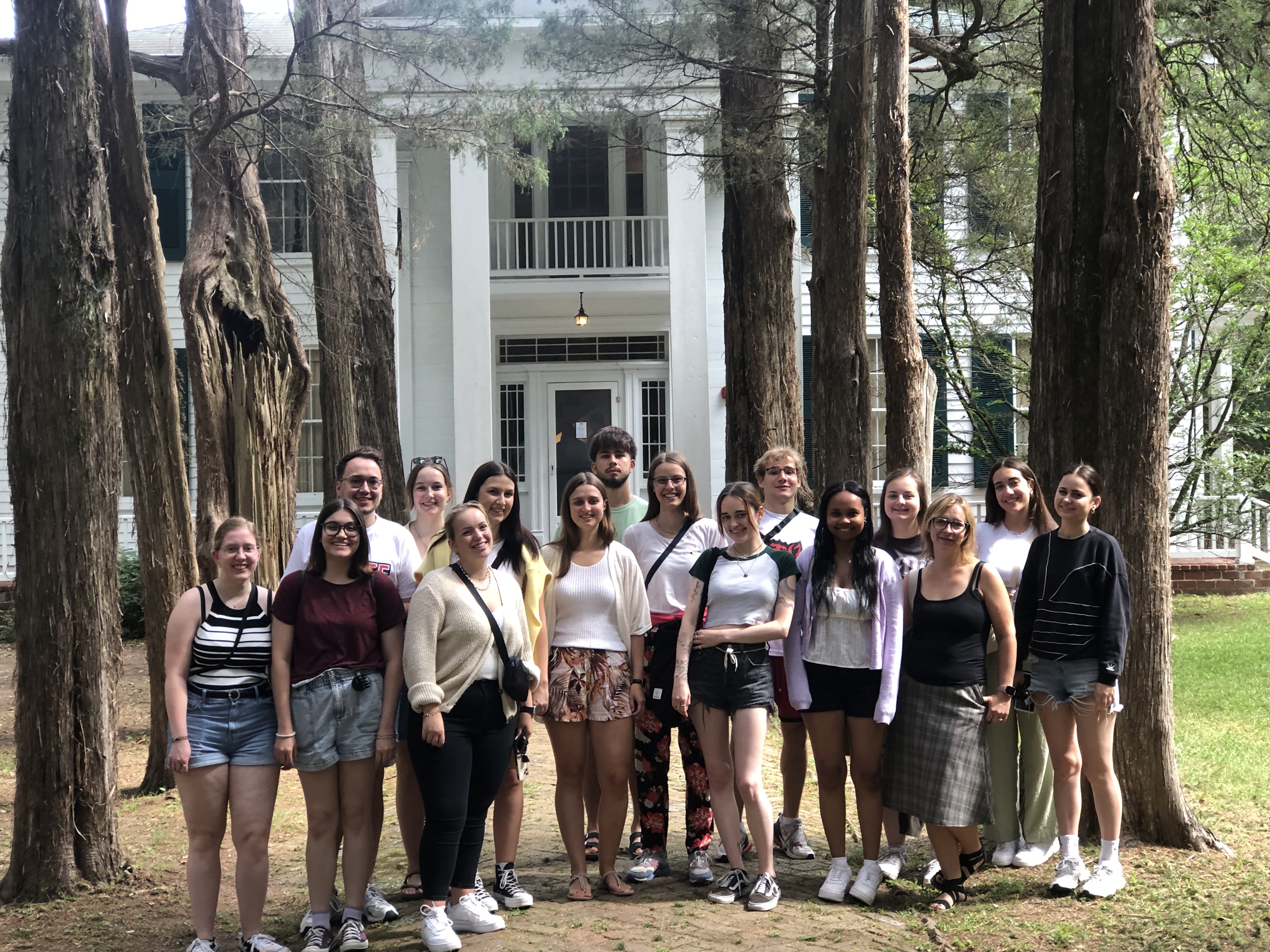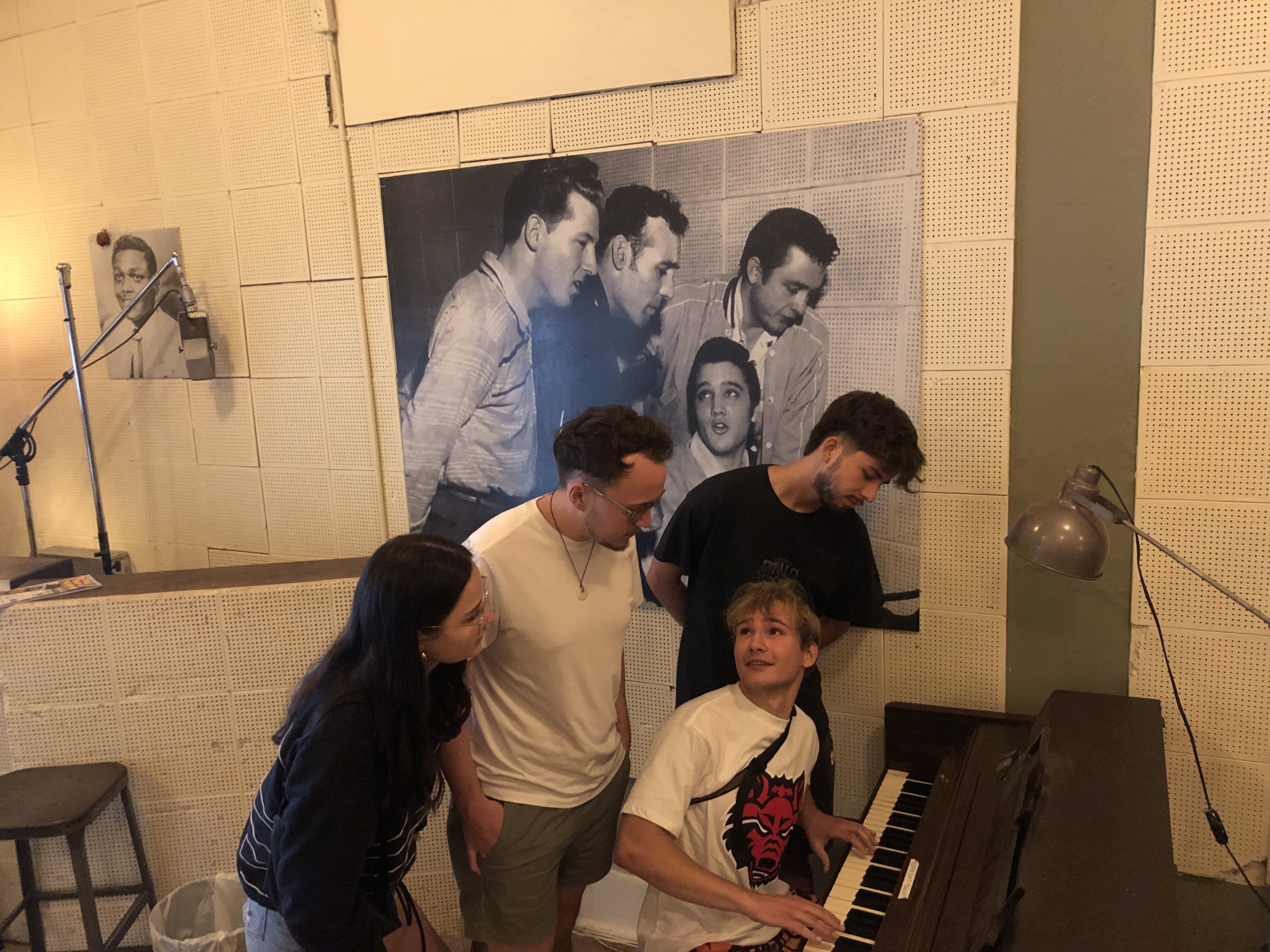 The School of American Studies began at Harding in 1952 with the goal of training tomorrow’s leaders by engaging with American history, politics, government, business and economics. Those efforts continue today in the American Studies Institute, which challenges students to explore the ideas that help shape the United States. Across the globe universities offer American studies programs, and many provide exchange and study abroad opportunities as Dr. John Richard Duke, executive director of ASI and professor of history, well understands.
The School of American Studies began at Harding in 1952 with the goal of training tomorrow’s leaders by engaging with American history, politics, government, business and economics. Those efforts continue today in the American Studies Institute, which challenges students to explore the ideas that help shape the United States. Across the globe universities offer American studies programs, and many provide exchange and study abroad opportunities as Dr. John Richard Duke, executive director of ASI and professor of history, well understands.
Duke taught at Johannes Gutenberg University in Mainz, Germany, from 2006-14 where he created a study abroad program for their American studies department. In 2013, with the support of several faculty members, Duke founded the American Studies Summer School for the Obama Institute for Transnational American Studies at Johannes Gutenberg University-Mainz. This three-week academic experience — which has become one of the staples of the JGU exchange programs — hopes to inspire students as they engage in the study of Southern literature, civil rights, and the history of food and music in the American South. With assistance from colleagues in Mainz, Duke hosts around 20 students in Searcy each year. In addition to classroom study, the group visits several sites like Little Rock Central, the Clinton Presidential Center and Mountain View’s Ozark Folk Center as well as spending time in people’s homes and enjoying the nature Arkansas offers.
“The summer school program creates relationships that extend beyond cultures and nationalities,” Duke said. “We try to welcome these students in the same way that colleagues and friends welcomed me when I lived in Germany.”
The program culminates with an educational trip throughout the American South visiting sites such as the National Civil Rights Museum in Memphis, Tennessee; William Faulkner’s home and the University of Mississippi in Oxford, Mississippi; and the Mississippi Civil Rights Museum in Jackson, Mississippi; as well as sites in Montgomery, Tuskegee, Selma and Birmingham, Alabama. The trip concludes with stops in Nashville and Washington, D. C. Along the way professors, guides and specialists provide insights that create significant experiential learning opportunities for students.

“... As a future teacher, I will always remember this trip when I teach about the Civil Rights Movement,” Leah Schaefer said. “It feels quite different knowing that I have been to all the places so that I can show pictures I took myself to my future classes.”
Another future teacher, Makda Getahun, was grateful for the “...meetings with people who have not only been a part of history but had their hand in writing it.”
To further enhance the experience, Duke partners with professional colleagues and several Harding alumni. At the University of Arkansas, Arkansas State University, The University of Mississippi, Tuskegee University and Fisk University local experts and scholars engage with students while many alumni also participate in the program as hosts, experts and guides.
“To read about history in a textbook and experience its impact by speaking to the people who experienced it firsthand are two very different things,” Pia Richter said. “... Speaking to witnesses such as Jerry Mitchell and Hezekiah Watkins has left an impression on me.”
Programs like the American Studies Summer school and leaders like Duke who are committed to pursuing academic scholarship on an international scale continue to build connections between institutes across the globe. In November, Duke joined colleagues from Mainz in a panel discussion on “Communities of Care” at the American Studies Association annual meeting in Montreal. The panel also included representatives from Stanford University, Columbia University, Kennesaw State University, Peking University in China and National Sun Yat-sen University in Taiwan.
Thousands of scholars around the world are committed to teaching and researching in the fields associated with American Studies, demonstrating its truly global significance.